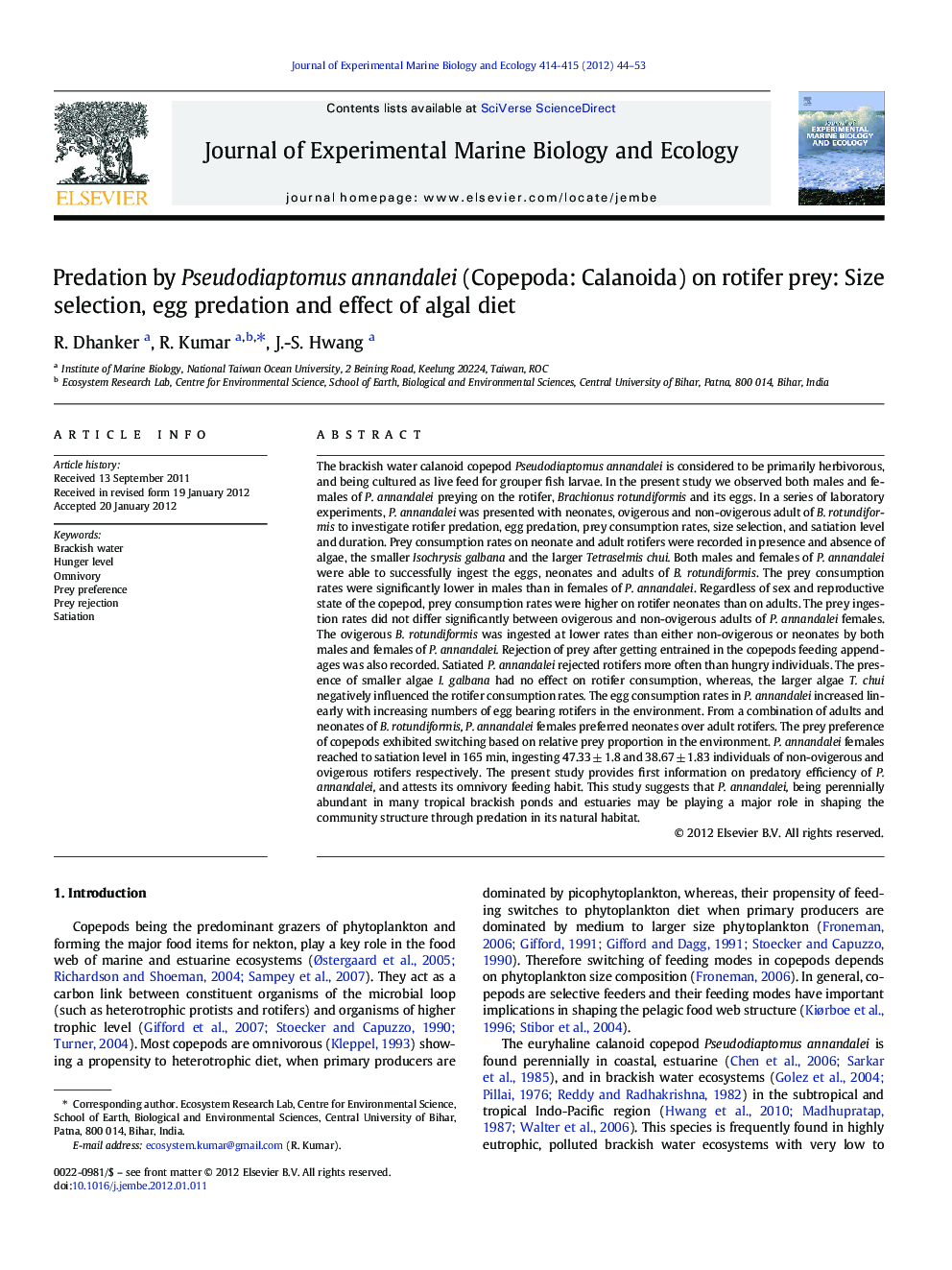| کد مقاله | کد نشریه | سال انتشار | مقاله انگلیسی | نسخه تمام متن |
|---|---|---|---|---|
| 4396023 | 1618450 | 2012 | 10 صفحه PDF | دانلود رایگان |

The brackish water calanoid copepod Pseudodiaptomus annandalei is considered to be primarily herbivorous, and being cultured as live feed for grouper fish larvae. In the present study we observed both males and females of P. annandalei preying on the rotifer, Brachionus rotundiformis and its eggs. In a series of laboratory experiments, P. annandalei was presented with neonates, ovigerous and non-ovigerous adult of B. rotundiformis to investigate rotifer predation, egg predation, prey consumption rates, size selection, and satiation level and duration. Prey consumption rates on neonate and adult rotifers were recorded in presence and absence of algae, the smaller Isochrysis galbana and the larger Tetraselmis chui. Both males and females of P. annandalei were able to successfully ingest the eggs, neonates and adults of B. rotundiformis. The prey consumption rates were significantly lower in males than in females of P. annandalei. Regardless of sex and reproductive state of the copepod, prey consumption rates were higher on rotifer neonates than on adults. The prey ingestion rates did not differ significantly between ovigerous and non-ovigerous adults of P. annandalei females. The ovigerous B. rotundiformis was ingested at lower rates than either non-ovigerous or neonates by both males and females of P. annandalei. Rejection of prey after getting entrained in the copepods feeding appendages was also recorded. Satiated P. annandalei rejected rotifers more often than hungry individuals. The presence of smaller algae I. galbana had no effect on rotifer consumption, whereas, the larger algae T. chui negatively influenced the rotifer consumption rates. The egg consumption rates in P. annandalei increased linearly with increasing numbers of egg bearing rotifers in the environment. From a combination of adults and neonates of B. rotundiformis, P. annandalei females preferred neonates over adult rotifers. The prey preference of copepods exhibited switching based on relative prey proportion in the environment. P. annandalei females reached to satiation level in 165 min, ingesting 47.33 ± 1.8 and 38.67 ± 1.83 individuals of non-ovigerous and ovigerous rotifers respectively. The present study provides first information on predatory efficiency of P. annandalei, and attests its omnivory feeding habit. This study suggests that P. annandalei, being perennially abundant in many tropical brackish ponds and estuaries may be playing a major role in shaping the community structure through predation in its natural habitat.
► Size selection, prey consumption and satiation time are elucidated in P. annandalei.
► P. annandalei utilized neonates, adults and eggs of B. rotundiformis as food.
► Prey consumption rates were significantly lower in males than in females.
► P. annandalei took 165 min to satiation level feeding.
► It ingested 47.33 and 38.67 individuals of non-ovigerous and ovigerous rotifers.
Journal: Journal of Experimental Marine Biology and Ecology - Volumes 414–415, 15 March 2012, Pages 44–53